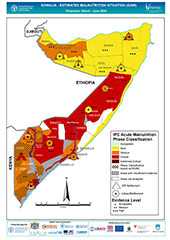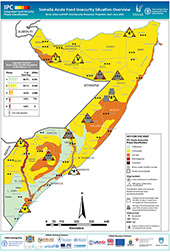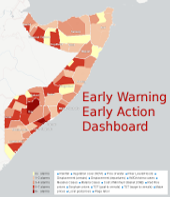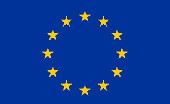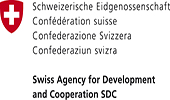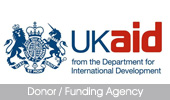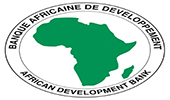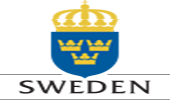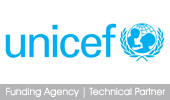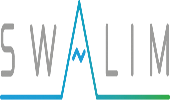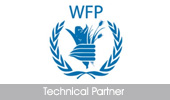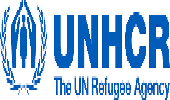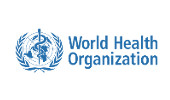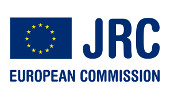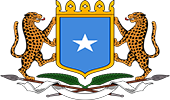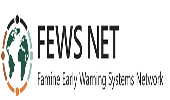Analytical Approach / Core Analytical Activities / Nutrition Surveillance and Assessments
Nutrition Surveillance and Assessments
FSNAU utilizes both anthropometric and non-anthropometric data for integrated analysis, with no one source being used in isolation. All nutrition assessments are undertaken with partners.
Nutrition Surveillance:
Nutrition surveillance undertaken by FSNAU and partners utilizes a diverse range of information sources on nutrition. These include detailed nutrition assessments, health facility information, rapid assessments, sentinel site surveillance and intervention data. Information on the wide range of factors affecting nutrition is also collected from partners in other sectors of health, food security, water and security. Most recently, methods and tools for the monitoring of dietary intake and coping strategies have been developed and are being tested during 2005.
Nutrition Assessments: FSNAU uses a standard nutrition assessment methodology. FSNAU Nutrition Survey Guidelines.The guidelines have been endorsed by partners in Somalia and the Nutrition Working Group of the Somalia Aid Coordination Body. The general objectives in undertaking nutrition assessments in Somalia are:
- To determine the prevalence of malnutrition (wasting, stunting and underweight) among children aged 6-59 months (and measuring 65-110 cm) or/and adults.
- To determine the levels of retrospective crude and under five mortality rates in the previous 3 months.
- To determine the coverage of health interventions ( e.g, measles vaccinations, vitamin A supplementation and oral polio vaccine) among children aged 6-59 months.
- To determine the incidence of common diseases (diarrhoea, measles and ARI)among the survey population, two weeks prior to the survey.
- To identify key food security issues influencing the population.
- To determine the possible causes of malnutrition in survey population.
- To recommend a range of interventions most likely to be effective in improving nutritional status.
All reports are available through this website. Raw data from most surveys are available on request from FSNAU.
FSNAU also has a Guide to Nutrition Information Collection, Interpretation and Analysis available in English and Somali. Draft guidelines on other methods are available by email from FSNAU.
Health facilities Monitoring: Currently there are around two hundred health facilities throughout Somalia. Over one hundred of these health facilities collect nutrition data on a monthly basis through anthropometrical measurements of children under the age of five. Nutrition data collected from these facilities is triangulated with information from other sources and the health facility workers who have been trained by FSNAU act as key informants throughout the country.
Data is available in the Health Information database.
Rapid Assessments: These are mainly carried out on an ad hoc basis and are useful when nutrition information is urgently needed and when access to the population of concern is limited by time or lack of other resources. Anthropometric, dietary and other data are collected during rapid nutrition assessments which are usually undertaken with partners from food security and health sectors. An inventory of assessments is available and summarized in the Monthly Nutrition Update.
Sentinel Site Surveillance: Sites are purposively selected, and nutrition and related data are collected on a regular basis in areas of heightened concern. Currently, anthropometric and mortality data on children and adults is combined with information on diet and coping strategies to allow a close monitoring of populations under stress. Reports are presented in the monthly nutrition updates. Raw data is available on request from FSNAU.
Intervention Data: Therapeutic and supplementary feeding programmes data is also used in the nutrition situation analysis. The data provides trends in admission as well as other feeding programme indicators. Incidence of malnutrition is therefore monitored.
FSNAU Products from Nutrition Surveillance and Asessments:-
- Monthly Nutrition Update
- Nutrition Survey Reports
- Dietary Surveys
- Nutrition Situation and Trends Map
